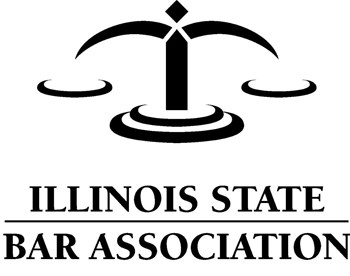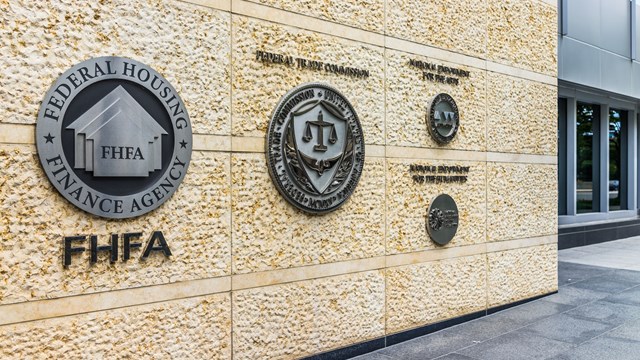
The Illinois State Bar Association (ISBA) has been the premier legal association in the state since being founded in 1877. As a voluntary organization, the ISBA’s primary focus is to help Illinois attorneys practice more effectively and efficiently.
“We engage in many important activities on behalf of the profession,” says ISBA Associate Executive Director David N. Anderson. “Among them, proposing and shaping legislation, educating the public, and supporting the courts and the rule of law.”
Looking Back
It all began when 88 lawyers from 37 counties congregated in the Sangamon County Courthouse in Springfield on January 4, 1877, and agreed to form the Illinois State Bar Association.
When it was created the founders adopted as Article II of its constitution the following goals: “To cultivate the science of jurisprudence, to promote reform in the law, to facilitate the administration of justice, to elevate the standard of integrity, honor and courtesy in the legal profession, to encourage a thorough and liberal education, and to cherish a spirit of brotherhood among the members thereof.”
In 1897, the ISBA was influential in consolidating the three grand divisions of Illinois’ Supreme Court into a single court, and later in locating the court in Springfield, where the current building was completed in 1908.
In 1931, the ISBA a pioneered the fight against the unauthorized practice of law, when it brought an action against People’s Stock Yards State Bank. The case established the principle that the Supreme Court has inherent power to punish any corporation or unauthorized person who practices law without a license.
Additionally, the ISBA has had plenty if other notable achievements. For example, in 1962, the ISBA spearheaded the successful campaign for revision of the judicial article of the Illinois Constitution. This sweeping change led to the creation of Illinois’ modern judiciary and is generally considered to be the ISBA's most important public initiative.
Since 1970, the ISBA has been a strong advocate for the no-fault divorce provisions of the Marriage and Dissolution of Marriage Act and for independent administration of decedents’ estates, both of which became law.
“In the Congress, the ISBA played a significant role in drafting language governing generation-skipping tax transfers,” Anderson says. “It was also instrumental in creating the Illinois Institute for Continuing Legal Education, the Client Security Fund of the Bar of Illinois, the Lawyers’ Assistance Program, and the Lawyers Trust Fund.”
Efforts to Help Children
At the beginning of his term in June of 2010, ISBA President Mark D. Hassakis created a task force focusing on the juvenile justice system, and the group is putting a great deal of energy into the program in 2011.
“It presented an educational program for lawyers and judges to raise awareness within the profession about needed reforms,” Anderson says, “especially alternatives to incarceration for juveniles involved in non-violent crime.”
Hassakis says that the state spends significant funds to incarcerate youth but does little to rehabilitate them.
“The solution is to develop a customized approach for each youth who has either entered the juvenile justice system or is incarcerated in it,” he wrote in a release. “What would the juvenile justice system look like if we knew our sons, daughters and grandchildren would go through it? We must all get involved if changes are to be made.
One program that is making a difference is Redeploy Illinois, which in its first three years diverted 382 youngsters from state juvenile prisons. Some 40 counties have also started Juvenile Justice Councils with action steps to develop a council that can lead to improved juvenile delinquency prevention measures.
Programs and Initiatives
Anderson says that the ISBA continues to promote ideas and proposals to strengthen the legal profession and the confidence and trust the public has in it.
“The Association actively addresses issues like the unauthorized practice of law, initiatives to improve Illinois courts and how to select and evaluate our judges, support for pro bono efforts and legal services for the disadvantaged, and much more,” he says.
The ISBA also encourages members to volunteer in their communities by recognizing lawyers who volunteer, and offers avenues for such service.
“Many lawyers perform pro bono legal services on a regular basis, as documented by the annual registration information collected by the Attorney Registration and Disciplinary Commission of the Illinois Supreme Court,” Anderson says. “One particular area of involvement is providing legal services to members of the military, including veterans, and their families on a low-fee or no-fee basis when appropriate,” he says.
The ISBA also helps homeowner associations with programs designed to provide advice and assistance. “The most direct assistance is through education provided to practitioners who represent homeowner associations,” Anderson says. “ISBA’s Real Estate Law Section publishes a regular newsletter and produces continuing legal education courses to help practitioners stay up-to-date on developments in that field of law.”
ISBA works hard to offer relevant services to its members by publishing 37 newsletters dealing with different substantive areas of law, The Illinois Bar Journal, practice books, and other professional assistance.
“Also,” says Anderson, “by preparing a daily summary of legal news, case law updates, and Association news that is delivered to all members for whom we have an email address; by effective representation of members’ interests in state and federal legislative bodies; by providing one-on-one guidance on professional ethics; and by conducting a strategic marketing campaign on behalf of Illinois lawyers.”
A Look at Leadership
The ISBA is governed by a 25-member Board of Governors and a 201-member policy-making Assembly, whose members are elected—some at large, but most representing different areas of the state. “All members can vote for a 3rd Vice President each year,” Anderson says. “This person moves through the chairs to become President in their fourth year in leadership.”
ISBA’s president rotates between Cook County and outside of Cook County. Any member of the Association can file nominating petitions to seek a leadership position. In addition to Hassakis as its current president, John G. Locallo is the president-elect and will take over soon. John E. Thies is 2nd vice president, Paula H. Holderman is 3rd vice president and John G. O’Brien is immediate past president.
The bar association counts among its honorary members, President Barack Obama, Michelle Obama, Hillary Clinton and author Harper Lee, whose depiction of Atticus Finch in To Kill A Mockingbird stands as an unparalleled example of legal integrity.
Past ISBA presidents have included Orville H. Browning, (1881) who was appointed to fill the U.S. Senate seat of Stephen A. Douglas after Douglas’ untimely death; David Davis (1884) who was appointed as Justice of the United States Supreme Court by President Abraham Lincoln; Melville Fuller (1886), who served as Chief Justice of the United States from 1888 to 1910; Lyman Trumbull (1892), who served as U.S. Senator from Illinois during the Civil War and co-authored the 13th Amendment to the U.S. Constitution, abolishing slavery.
Looking Ahead
From June 16-18 this year, the Illinois bar will be holding its 135th annual meeting on the banks of Lake Geneva in Fontana, Wisconsin, and some big things are planned to be on the table.
“Our annual meeting is devoted to ‘changing the guard,’ presentation of awards to members and others who have served the Association and the public, and a meeting of our policy-making body, the assembly,” Anderson says. “Hot topics for the Assembly are difficult to predict, and can arise right up to the time of the meeting.”
The Illinois State Bar Association works on behalf of its members to fulfill its mission of providing resource and educational services to its members and the general public. With 30,000 members, it is the largest voluntary statewide organization of lawyers in Illinois.
Keith Loria is a freelance writer and frequent contributor to The Chicagoland Cooperator.






Leave a Comment